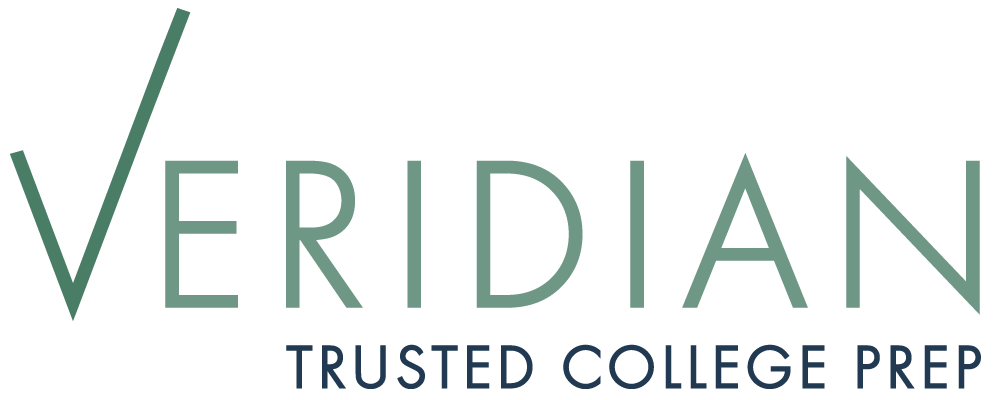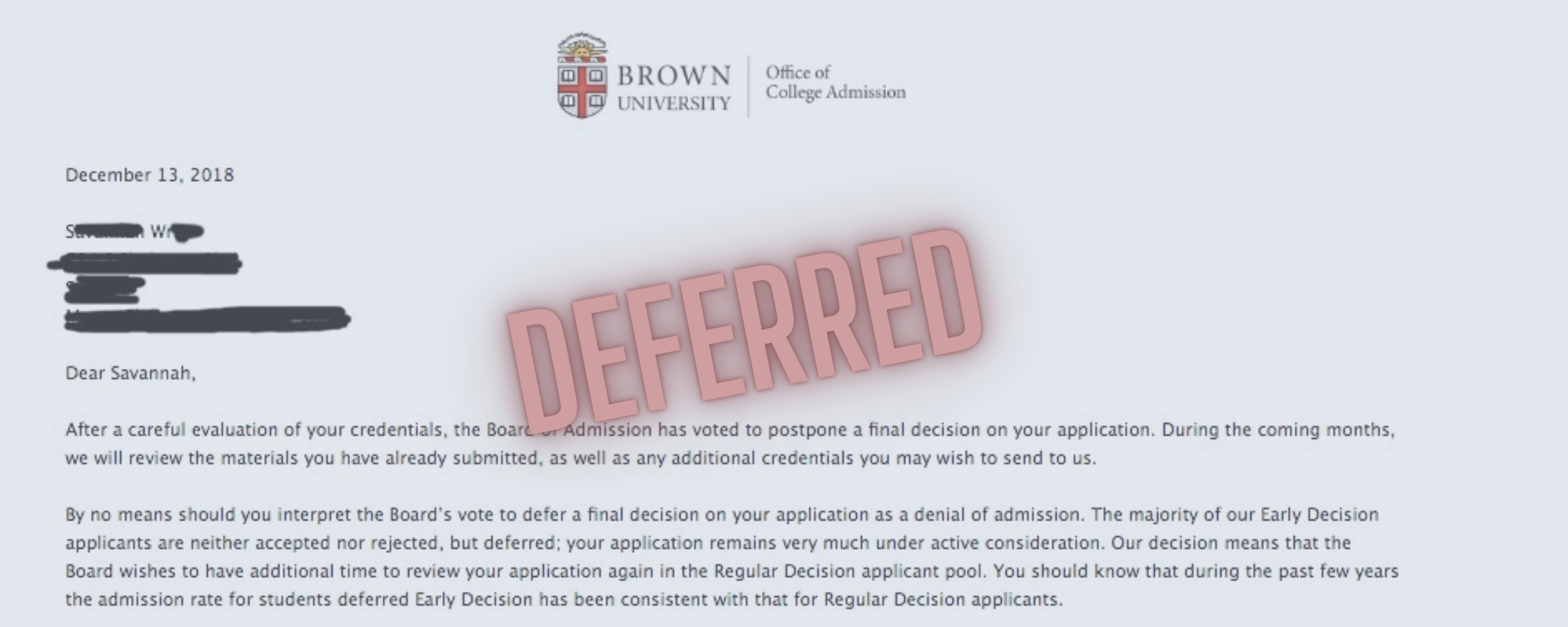Early Action/Early Decision: Deferral Limbo
by Valerie Erde
NoT accepted. Not rejected.
Welcome to The limbo Of Deferral
Remember that if a college is receiving tens of thousands of applications and has a 5% or 15% or even 25% acceptance rate, there are many qualified, talented students who are getting outright denied. And if the particular college that you applied to isn’t one of those institutions known for deferring large numbers of applicants, or extending “courtesy” deferrals to legacies, then you may have a shot in regular decision because it’s likely something in your application resonated with them. Perhaps, however, they just weren’t 100% sure, and there’s something additional they’d like to see from you (such as recent grades) before they decide. You aren't a cookie-cutter applicant, but it’s possible you might have come off that way by how you wrote your original application. If you plan to follow up with the college, showcase what makes you special. With a carefully crafted letter of continued interest (LOCI), hopefully they’ll see more promise in your application within the Regular Decision pool.
What You Shouldn’t Do
My first piece of advice is not to beat yourself up about it! If you’re still interested in pursuing your deferral college for Regular Decision, by all means, do so, but don’t take immediate action because…
you have limited remaining time to craft strong Regular Decision applications.
you’ll want to think strategically about your letter in terms of both content and timing.
you need to read your deferral letter carefully. Many colleges will tell you what additional information, if any, they would like to receive from you and how they would like to receive it. Here’s an example from the University of Michigan.
What You Should Do
Reflect And Take Stock OF YOUR College List & Common APP
If you’ve put a lot of emotional energy into your EA/ED school, it may be difficult, at first, to feel excited about other colleges. But remember, there are a lot of great schools! (And maybe it will help you to hear that of the scores of students I’ve worked with, only one student of mine who didn’t get into their first-choice college transferred.)
Re-evaluate your college list. If you were deferred or denied to your EA/ED university. Carefully consider whether or not your college list is balanced (not filled with high reaches) and that your target and likely schools make sense.
Re-evaluate your existing application. Some things are out of your control. But, I’ve also seen and heard stories of students having omitted important items from or simply not taken full advantage of the Common App.
Get a second opinion on your essays, like a trusted friend, parent, or counselor (not your teachers who are on holiday break). Are they cliche? Did you communicate how you think, feel, or how you view the world? Or did you simply describe a laundry list of events without communicating any insight or growth? Was there too much “tell” and not enough “show?”
How strong are your "why I want to go to ______ school" or "why I want to study _____" supplemental essays? I highly recommend you read this post co-authored by Rick Clark, Georgia Tech’s Dean of Admissions.
Write a LOCI (Letter of Continued Interest)
Write a LOCI if the college wants one and if you have new/meaningful information to add. But, before you even begin writing a LOCI, you’ll want to do some additional research and legwork so you can really develop “your brand” and identify what makes you special and how the university’s unique offerings align with your own interests. For example, it can help to dig deeper and research a college’s institutional priorities/mission. Here’s an example from Brown University.
Other things to consider:
If you have friends, or alumni from your high school, at the college, contact them and ask about their experiences to so you can write convincingly about how you align with that university's mission and values.
If you wrote a meh "why I want to go to your school" essay, do more research on the university's unique offerings. Describe how you'll pursue these opportunities very specifically. Don't simply say that you want to take _____ class, but describe the value you'd bring and the value you'd gain from the classroom, based on your unique experiences and insights.
Connect your disparate activities/interests to tell a story of what you'd gain from a healthcare policy course; research conferences, lectures, or events on campus and discuss how you'd specifically engage with those opportunities.
Any new awards? New leadership titles? Accomplishments? Have you led any cool new initiatives in a club? (btw - you don't need a shiny award or certificate to count something as an accomplishment).
Most universities don’t want to see additional recommendation letter, but if there’s someone who will share a side of you that wasn’t captured in your original application, you (not mom or dad) may reach out to admissions and ask if they’d accept an additional letter.
LOCI Timing
If you think you may earn an award, lead a new initiative, or earn a “personal best” in late December or early January, wait a few weeks so you have something new to add. Is there a project you're pursuing over winter break (a Coursera class, for instance) that relates to the “brand” you're building and the value you’d bring to the institution? Most students submit the form/send the LOCI by the end of January, but it depends on you and on the school’s deadline.
Parting Thoughts
Sometimes, it’s simply best to move on from a deferral. And that’s 100% okay!, However, if you want to feel that you gave it your best shot, put in a little time after your Regular Decision applications have been submitted. And if you’re unsure about the “presentation” of your regular application, get in touch; I’m here to help!

